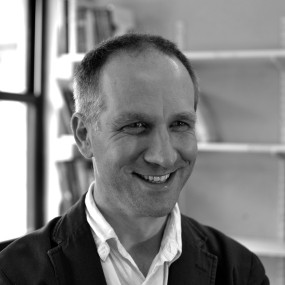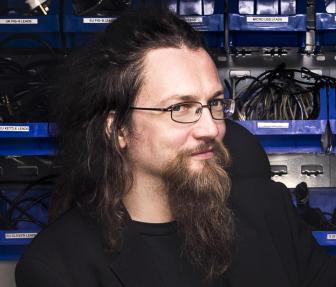 Rich Walker, Shadow Robot Company
Rich Walker, Shadow Robot Company
Managing Director of Shadow Robot Company
Rich Walker is the Managing Director of Shadow Robot Company. He has a BA in Mathematics and a Diploma in Computer Science from Cambridge University. He has spent years working in robotics, and now leads the team at Shadow who are developing new robots and new applications for robotics.
He is active in developing and implementing European (FP7 and now Horizon 2020) and Innovate UK projects and always happy to discuss possible projects and proposal ideas.
Rich is on the Innovate UK “Robotics and Autonomous Systems” SIG Advisory Board, as well as several EPSRC robotics advisory boards and management committees.
When not working on CHIRON, he is also one of the three SME Directors of the EuRobotics association, helping shape the robotics roadmaps. Outside windowless rooms with Powerpoint presentations, he likes to find new ways we can apply next-generation robotics technology and thinking to solver real-world problems (even if someone else does it!)
Hobbies and interests: Rich Walker turned his hobby of building robots into his job, which has both advantages and disadvantages.
What does the future of Assistive Technology look like to you? I think that robotics technologies, not necessarily robots(!), are key to transforming the efficient and effective delivery of care and improving the quality of our lives.
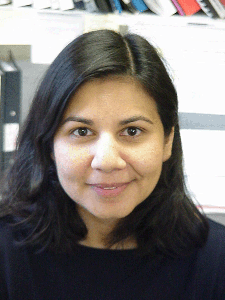
Dr Praminda Caleb-Solly, Bristol Robotics Laboratory
Head of Electronics and Computer Systems at Designability (Bath Institute of Medical Engineering)
Dr Praminda Caleb-Solly is an Associate Professor in Independent Living Systems in the Faculty of Environment and Technology at the University of the West of England. She is team leader for Assisted Living at the Bristol Robotics Laboratory and Head of Electronics and Computer Systems at Designability. She has over 15 years of teaching and research experience working on externally funded projects with partners from a diverse range of commercial and industrial enterprise. Her multi-disciplinary background, underpinned by degrees in Electronic Systems Engineering, Biomedical Instrumentation Engineering and a PhD in Computer Science, enable her to address technical issues in relation to human experience of technology.
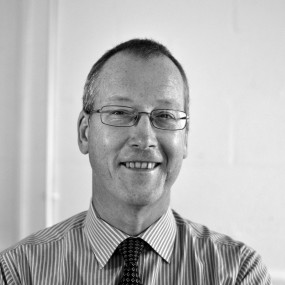
Nigel Harris, Designability
Director at Designability and CHIRON Project Lead
Professor Nigel Harris is the project lead for CHIRON. He has been the Director of Designability since 2009. Nigel has a PhD in Applications of Electrical Impedance Tomography in Respiratory Medicine from University of Sheffield (1991). He has more than 25 years of NHS experience in Medical Physics research and managerial roles. Among his list of titles, he is an Honorary Chair with the Department for Health at the University of Bath as well as a Fellow of the Institute of Physics and Engineering in Medicine. He is also an Honorary Consultant Clinical Scientist, Royal United Hospital Bath and a Registered Clinical Scientist, contributing to Medical Engineering and Assistive Technology work programs.
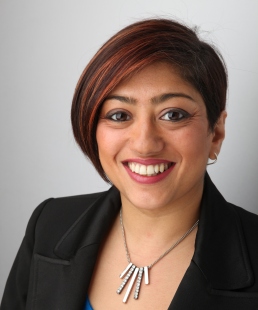
Jobeda Ali, Three Sisters Care
CEO of Three Sisters Care
Jobeda Begum Ali is an English businesswoman, award-winning social entrepreneur, documentary filmmaker and Chief Executive of Three Sisters Care. In 1996, Jobeda graduated with a BA Hons in Indian and African History from the Trinity College, Cambridge. In 2000, she completed an MA in History, and in 2004, she completed an MA in World Trade and Development: Regulation and Responsibility at the University of Cambridge. In January 2012, she co-founded Three Sisters Care, a care company providing care at home to elderly and disabled people. The homecare agency works across London and the suburbs, mainly with older people, but also with young adults with disabilities. In 2014, it won the Social Enterprise of the Year Award at the Precious Awards in recognition of its social business practices. In 2015, Jobeda was shortlisted for Social Enterprise of the Year Award at the Forward Ladies Women in Business Awards. She is a regular contributor to The Guardian Social Care Blog and has written about ethical employment and living wage in the care sector.
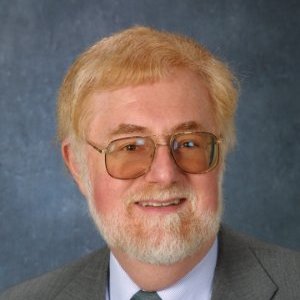
Dr. Richard Curry
E-health Development Director, SEHTA
Dr. Richard Curry is the e-health Development Director for SEHTA and is the Founder of the SEHTA initiative in Telecare (ICE-T). He is also an independent consultant specialising in telemedicine and telecare and has authored several reports on aspects of telemedicine and telecare for Government. He has worked with a number of NHS Trusts, District Councils and Charities helping them to implement telemedicine and telecare programmes. He is also a Senior Research Fellow at University of Portsmouth where he is actively engaged in research into assisted living. Until recently he was Senior Scientific Adviser to the Department of Health’s research initiative on the role of technology in supporting chronic disease management, self-care and healthy living and an adviser to the Technology Strategy Board (TSB) on their Assisted Living Innovation platform. He holds a PhD in physics from the University of Durham and is a Fellow of the Royal Society of Medicine.
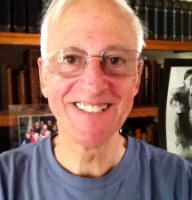
Richard Greenhill, Founder of Shadow Robot Company
Richard is a serial entrepreneur and inventor, with a number of patents under his belt. An early robot visionary, Richard set out in the 80’s to build robots for the home, and has been building, talking about or receiving awards in robotics ever since.
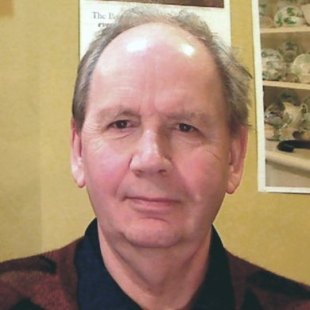
Stephen Pattenden
Consultant at Telemetry Associates Limited
Stephen Pattenden has been involved in ITC and Information to the home for around 20 years and having gained an Msc from Loughborough University in Robotics and Flexible Manufacturing Systems, spent 12 years with GEC Computers starting in IT and moving to Marketing and Business Development with GPT Payphones. He was involved with the BT MeterLink project and in the product management of the Telemetry Interface Unit developed by Payphones for BT. During this period he gained an MBA from the Open University and in-depth knowledge of the Metering and Utility Sectors. He formed Telemetry Associates in 1998 and has been Principal Consultant and Managing Director since. The company was incorporated as Telemetry Associates Limited in April 2001. Stephen manages the secretariat of The Application Home Initiative (TAHI), is the Managing Editor of the SmartHouse Code of Practice, is convenor of (Standards) TC205 WG5 (Residential Gateways) and is editor of the TAHI Open Architecture work.
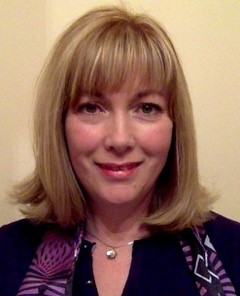
Joanne Jenkins
SH&BA
Joanne is a researcher and industry consultant in technology-enabled care. She helps organisations and individuals understand the opportunities and challenges presented by the emerging market for technology-enabled care (TEC). Joanne helps organisations specialising in technology-enabled care and well-being to create relevant, market-led solutions; develop new sustainable business models; and exploit market opportunities. As part of her doctoral research within the University of Portsmouth School of Computing’s, Centre for Healthcare Modelling and Informatics, Joanne is investigating the potential of TEC to facilitate choice, autonomy, and person-centred care. Joanne draws on her background in the commercialisation of innovation and new product development to support high-growth, innovating technology businesses. Her research work ensures up-to-the-minute sector knowledge and her participation as project manager and/or researcher in seven collaborative assisted living technology projects has resulted in extensive national and international sector contacts.
Hobbies and interests: Outside of work, Joanne aims to challenge herself by try something new every year. Challenges so far have included: spring-board diving, kayaking, golf, windsurfing, sailing, ballroom and Latin dancing, and drawing ‘on the right side of the brain’, to name but a few.
What does the future of Assistive Technology look like to you? My hope for the future of Assistive Technology (AT) is simple: mainstream solutions that are affordable, accessible to all, easy to choose and simple to use, whenever and wherever required.
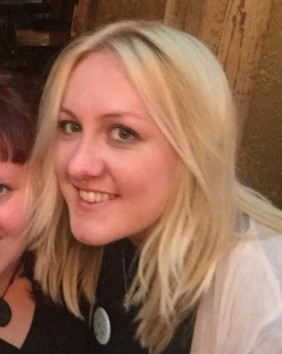
Sinéad Nolan
Research and Communications Officer,
Three Sisters Care
Sinéad Nolan has a BA in Creative Writing and an MA in Newspaper Journalism (NCTJ accredited) from Nottingham Trent University. Prior to working on the CHIRON project, she wrote features for some of the biggest selling publications in Ireland and the UK including the Sunday World, Irish Independent, Worksop Guardian, Irish Daily Mail, Best, The Lady magazine and the careers website Totaljobs.com. As a fiction writer, she was shortlisted for the Momaya Press Awards 2015 and 2014, and the Francis McManus Short Story Competition 2006 and has been published in the Incubator literary journal. Having a passion for people, as well as writing, she is currently studying part time to become a qualified counsellor – on the back of this she accrues weekly hours as a volunteer counsellor in bereavement and post-natal depression charities.
Hobbies and interests: When not working on CHIRON, Sinead spends her time writing short stories and hopes one day to publish a novel. She also enjoys travelling, watching documentaries and reading about the latest updates in the science world.
What does the future of Assistive Technology look like to you? My hope is that assistive technology will provide us with increased independence in our old age. Far from a dystopian hell, I think the future of assistive robotics looks bright!
Twitter: Three Sisters Care: or personal Twitter:
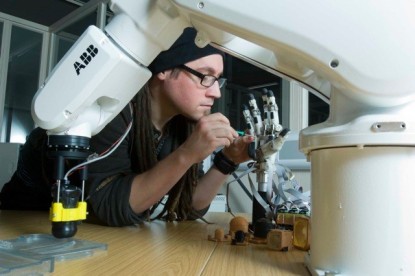
Mr Benjamin Winstone
Robotics Researcher, Bristol Laboratory
Benjamin is a robotics researcher at the Bristol Robotics Laboratory. Benjamin has recently been completing a PhD in medical robotics. The focus of this PhD was the development of active capsule endoscopy with tactile sensing for detection of suspicious tissue found in the walls of the lumen. This was achieved with a combination of bio-inspired soft sensors and soft bodied locomotion to present a concept of a small robot you can swallow like a pill for quick and easy investigation of the GI tract. Prior to the PhD Benjamin has been working in a range of technology areas starting as a Technical Apprentice with Rolls Royce plc., Robotics Application Developer within the space industry and more recently spent two years developing bio-inspired tactile fingertip sensors for robot hands. Benjamin has an enthusiasm for bio-inspired and biomimetic design methods, soft robotics and systems integration. Beyond his work at the robotics laboratory Benjamin has been developing creative technology and robotics for art galleries, exhibitions and festivals for a number of years.
Hobbies and interests: Benjamin’s hobbies include adventures outdoors with his dog Bruce, cycling and playing bass guitar.
What is your hope for the future of Assistive Technology? Benjamin’s hopes for the future of assisted technology are that we can enrich our lives with healthier independent living for longer in our later years. The future is not just about adopting technology and gadgets as we age, but educating ourselves about living healthier, more preventative lifestyles now so that we can enjoy ourselves more independently later on. Technology provides the answer to providing us with healthy living data and understanding our health needs better so that we can provide the correct care as and when we need it.
Tim Adlam, Senior Mechanical Engineer, Designability
Dr Tim Adlam is working to create technology for people with disabilities that is useful, useable and beautiful – technology that enables people to live a better life by supporting their ability to express themselves and connect with other people. He is a creative problem solver and an engineer, working across multiple technical and clinical disciplines, but focusing on meeting the needs and desires of people with disabilities. He loves teaching students how to design for people who are different to them, and helping to create new partnerships between researchers, industry and people with disabilities.
Tim began his career as a production engineer with a bridge manufacturer, but quickly moved into designing technology for people with disabilities at Designability. During twenty years of working in this field, some of Tim’s more unusual projects have included bicycles for children with restricted growth, a device for measuring changes in tissue stiffness after radiotherapy, a phantom for calibrating cardiac output imaging, and smart bath taps and cooker knobs for people with dementia.
Tim spent ten years researching useful technology for people with dementia, working on the pioneering Gloucester Smart House and European ENABLE projects, and helping to establish enduring collaborations between UK and Canadian researchers.
Tim’s PhD was in dynamic seating for children with complex dystonic cerebral palsy, and he continues to work in this area. With clinical partners in Exeter and London, he is researching how to physically support children with complex movement disorders and powerful whole-body involuntary spasms, so that they can increase their ability to express themselves and connect with other people. He is currently planning a multi-centre clinical trial of a new seat for preschool children, focusing on measuring functional outcomes.
For the CHIRON project, Tim is the lead mechanical engineer, working with engineers from Designability, BRL and the Shadow Robotics Company to create advanced technology to support the care of frail older people at home. CHIRON presents some complex challenges in its interactions with people with a wide range of capability, and its systems must still be strong, safe, beautiful and useable.
Tim’s greatest inspiration in his work is people with complex disabilities whose problems he is trying to understand and solve. They challenge him, make him laugh, and they never give up.
Tim’s TEDx Talk:
Hobbies and interests: Tim loves music. He enjoys playing a variety of musical instruments and sings with the hospital choir. He likes using hand-tools to create useful things out of greenwood, and when he has time, goes canoeing with his family on the canals and rivers of Wiltshire.
What is your hope for the future of Assistive Technology? All technology is designed and built to assist us, and none of us can do everything we want to do. The future of assistive technology is the future of all technology, and it will be as amazing as we make it to be. What do you want to do tomorrow that you can’t do today?
Twitter:
Sanja Dogramadzi, Associate Professor at UWE and Senior Lecturer at Bristol Robotics Lab.
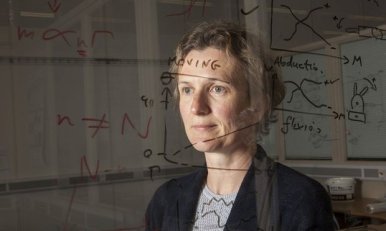
Sanja Dogramadzi is a pioneer of medical robotic technology for the operating theatre. In collaboration with Professor Roger Atkins, an orthopaedic surgeon at University Hospitals Bristol, she designed what is believed to be the first robot-assisted system to tackle the problem of complex joint fractures.
Alexandra Leach, Commercial and Fundraising Manager at Designability
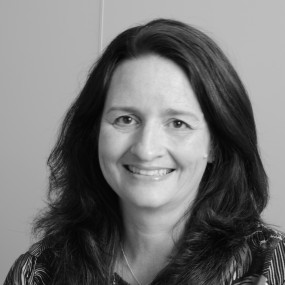
Alex has a background in nursing, combined with extensive sales and marketing experience within a number of healthcare product manufacturers within both primary and secondary care. Alex is responsible for all commercial and financial aspects of our work including fundraising, product sales and negotiating commercial contracts.
Gavin Cassidy, Shadow Robot Company
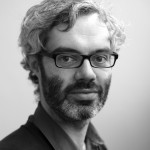
Gavin is an Industrial Design graduate from Brunel University. With previous SME experience developing technology products for the long term, he now leads Shadow’s Operations team in delivering projects and products.
Hugo Elias, Shadow Robot Company
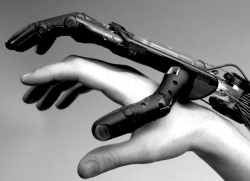
Hugo Elias is a Senior Robotics Engineer at Shadow. He has been involved in the design, development, programming and manufacture of advanced robotics for over two decades, as well as hosting a popular computer graphics website, and has a number of patents in robotics and sensing to his name. Hugo is currently leading Shadow’s engagement in one European and one National research project, and bringing next generation sensor products to market. In his spare time, Hugo enjoys dancing and making furniture.
Advisory Board Members
Some of the advisory board members for CHIRON are listed below.
Chair of Advisory Board – Graham Worseley, Designability
Website: http://www.designability.org.uk/

Richard Pantlin, Programme Manager, Care Act & Engaging Citizens Online at Association of Directors of Adult Social Services (ADASS)
Website: http://www.richardpantlin.com/

Steve Maslin, RIBA Chartered Architect
Website: http://www.buildinguserdesignsolutions.co.uk/id1.html

Madeleine Starr MBE, Carers UK, Director of Business Development and Innovation at Carers UK
Website: https://www.carersuk.org

Joanna Metcalfe, Chartered Building Surveyor, Gleeds
Website: https://www.gleeds.com/

Elizabeth White, Interim Head of Education and Research at British Association and College of Occupational Therapists

